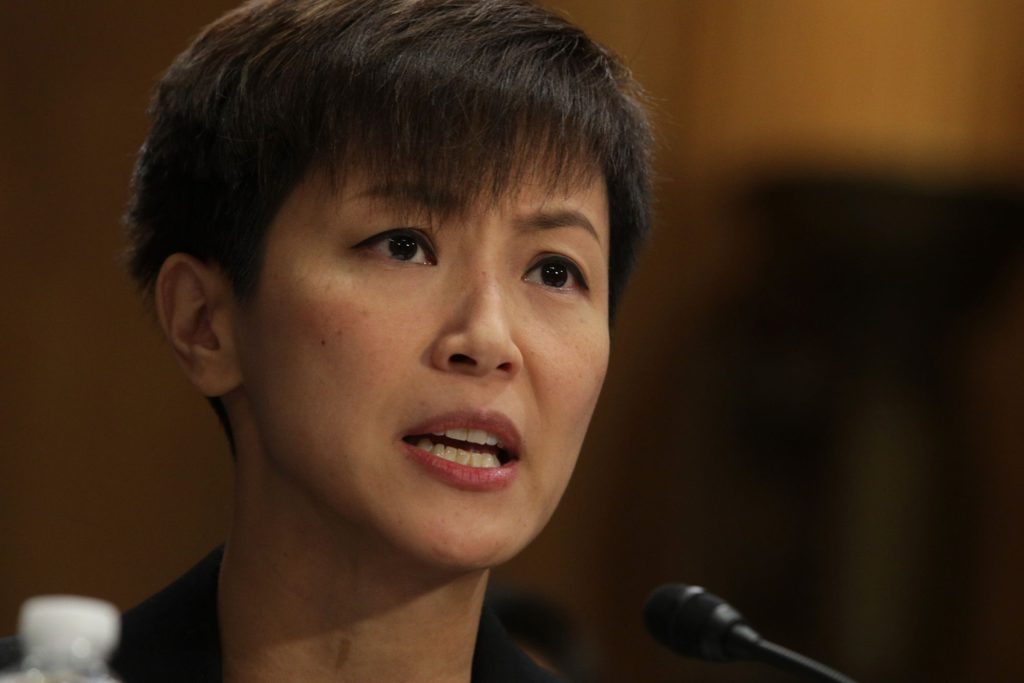(Bloomberg) — Hong Kong’s biggest remaining pro-democracy news outlet closed after becoming the target of a national security investigation, capping a year of historic strokes by Beijing to silence dissent in the Asian financial center.
Stand News announced Wednesday on Facebook that it would immediately lay off all staff and cease operations, and take down its website and social media accounts within days. The move came hours after more than 200 police raided the outlet’s newsroom, froze some HK$61 million ($7.8 million) of assets and arrested seven people connected to it on a colonial-era sedition law. They included acting Editor-in-Chief Patrick Lam and Denise Ho, a pop star who had testified about Hong Kong before the U.S. Congress.
Stand News had briefly been the largest Chinese-language media outlet publishing coverage critical of the Hong Kong government after Apple Daily’s closure in July under pressure from a similar probe. The site had braced for police scrutiny, announcing in June that it would purge opinion pieces from its site and stop accepting subscriptions and sponsorships.
The sudden fall of Stand News is the latest in a series of devastating blows to the former British colony’s once-vibrant opposition this year, including the arrests of scores of prominent activists and the election of new legislature vetted by Beijing. The campaign has remade Hong Kong as it prepares to celebrate the 25th anniversary of Chinese rule — halfway through Beijing’s promise to leave the city’s basic policies “unchanged for 50 years.”
“A vibrant and trustworthy global financial hub requires creativity, transparency of information, and plurality of opinions,” said Eric Lai, a Hong Kong law fellow at Georgetown University’s Center for Asian Law. “Hong Kong will eventually lose these core elements when protection of free speech becomes lip service.”
Those arrested Wednesday were detained on a once-little-used sedition law dating back to 1938 that still refers to “Her Majesty” and “the Crown.” Hong Kong authorities have seized on the powerful law to prosecute opposition figures in addition to the four crimes outlined in the Beijing-drafted national security law imposed on the city in June 2020.
The government has previously denied that local media is under political pressure, saying it is “firmly committed to protecting and respecting the freedom of the press.” Chief Secretary John Lee, a former police official now promoted to be the city’s No. 2 post earlier this year, dismissed such concerns, telling reporters that those who used the media to pursue political goals were the “evil elements” damaging press freedom.
“Professional media workers should recognize that these are the bad apples who are abusing their position by wearing a false coat of media worker,” Lee said.
Seditious Materials
Others arrested Wednesday for conspiring to publish seditious materials included former Editor-in-Chief Chung Pui-kuen and former board members Margaret Ng, Chow Tat-chi and Christine Fang, according to the South China Morning Post. Ng was a prominent commentator and former lawmaker. The sedition offense carries a maximum sentence of two years in prison and a HK$5,000 fine.
The Communist Party’s Global Times newspaper published an article citing unnamed observers who hailed the arrest of Ho as “the best Christmas present.” The article said that those arrested had been working with the U.S. to destabilize Hong Kong.
The previous day, jailed Apple Daily founder Jimmy Lai, and six of his former staffers, were also charged with conspiracy to produce and distribute seditious publications. The 74-year-old former media mogul faces additional national security charges.
The Committee to Protect Journalists condemned Wednesday’s raid and called the arrests an assault on press freedom. “Authorities must release the six and drop all charges against them immediately, if Hong Kong is to retain any semblance of the freedoms that its residents enjoyed only a few years ago,” said Steven Butler, CPJ’s Asia program coordinator.
The move prompted questions about how much further the government would go to rein in the press in one of Asia’s main media hubs. With the closure of Stand News, only a handful of independent outlets remain, including the English-language Hong Kong Free Press.
The city’s public broadcaster, Radio Television Hong Kong, has had hard-hitting programs canceled and former staff have accused the organization of purging voices critical of the government. Hong Kong Chief Executive Carrie Lam suggested in July that a “law needs to be introduced” to police what the media publishes.
READ: Hong Kong’s Pro-Democracy Activists Are Running Out of Options
Hong Kong ranked 80th in the latest Reporters Without Borders press freedom index, down from 54th a decade ago. Some 46% of Hong Kong-based journalists polled by the Foreign Correspondents’ Club, Hong Kong said they were considering leaving the city last month.
“These actions are a further blow to press freedom in Hong Kong and will continue to chill the media environment,” the FCC said in a statement Wednesday. “The club urges authorities to respect press freedom, protected under the Basic Law and vital to the maintenance of Hong Kong’s status as an international financial center.”
More stories like this are available on bloomberg.com
©2021 Bloomberg L.P.











